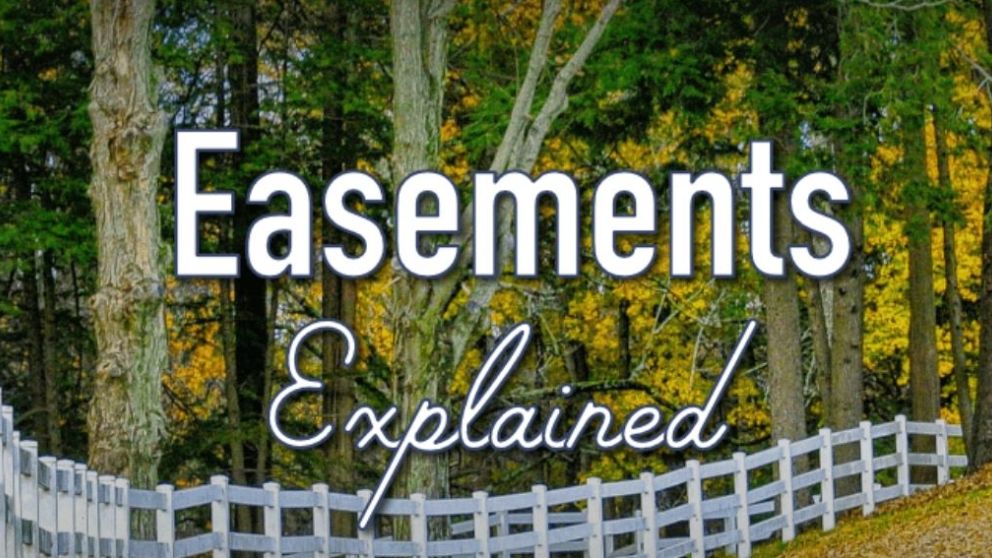Quick Guide to Land Easements

February 01, 2024
By Laura Mueller/Landhub.com
THE QUICK GUIDE TO LAND EASEMENTS
If you’ve owned land before or if you’re looking to buy, you may be familiar with the concept of easements. You may have even decided against a land purchase because of an easement, or fought to keep or abolish one.
In any case, easements can be a tricky thing to navigate for landowners. They can also be a bit confusing, especially once you realize that there are multiple types of easements, each with their own specific terms and allowances.
We’ve already covered how easements work in another article, but below we’re going deeper into the topic of easements themselves, including the six types of easements you need to know about as you look to buy land.
What is an Easement?
An easement is a grant of access to a property that is given to someone who is not the legal landowner.
Examples of easements include a neighbor being able to use part of your driveway to access their property, or a free-to-use path existing on your property to get from the road to a public beach. Note that easements can only be used for their express purpose. So your neighbor can’t park their car on your driveway, and beachgoers can’t take another route on your property to get to the shore.
6 Types of Easements
If you see a property for sale that has an easement, it’s important to be able to distinguish what type of easement it is and what its terms are. Here are the six types of easements you might come across in the land real estate market.
1. Private Easement
An easement created by a property owner and given or sold to another party.
Example: A landowner letting their neighbor run a power line across their property.
2. Utility Easement
The right of a utility company to access your property and any relevant infrastructure on it.
Example: An internet provider being allowed to access and manage cables on your land.
3. Easement by Necessity
A court-ordered easement that gives another party access to part of your land because it’s the only way to access another private or public land parcel.
Example: A neighbor being able to use your private road to get to their driveway because there’s no other access point available for them.
4. Easement Appurtenant
Private easements or easements by necessity that run with the land – i.e. apply to not just current owners but future owners as well.
Example: An easement allowing public access to a path on a property that transfers to the next owner when the land is sold.
5. Easement in Gross
Giving rights of access to another party that are non-legal and do not transfer with sale.
Example: Letting your neighbor store their riding lawnmower in your shed.
6. Prescriptive Easement
Legal access to land given after a non-owning party has already been accessing that land for a set period of time, usually several years or more.
Example: An individual being given access to their neighbor’s pond after they’ve been fishing in it for a decade without any objection from the owner.
Easements aren’t always a bad thing. If you see a property for sale that has an easement on it, do some digging to find out what the legal specifications of that easement are, whether the easement transfers with the sale, and what it will mean for your own private use of the land.
If you are interested in selling real estate, please allow Target Auction Company the opportunity to detail the benefits of our auction platform and provide you with a free consultation. We can offer the information and advice needed to make a sound decision regarding the sale of your property. We can be reached by email, at 1-800-476-3939 or visit www.TargetAuction.com.














